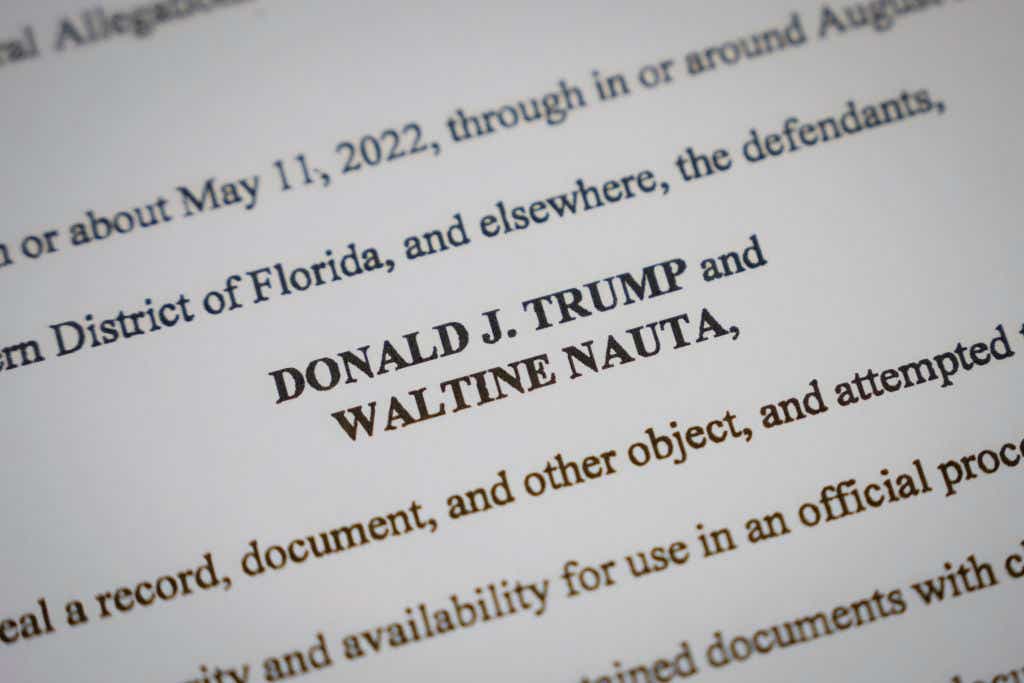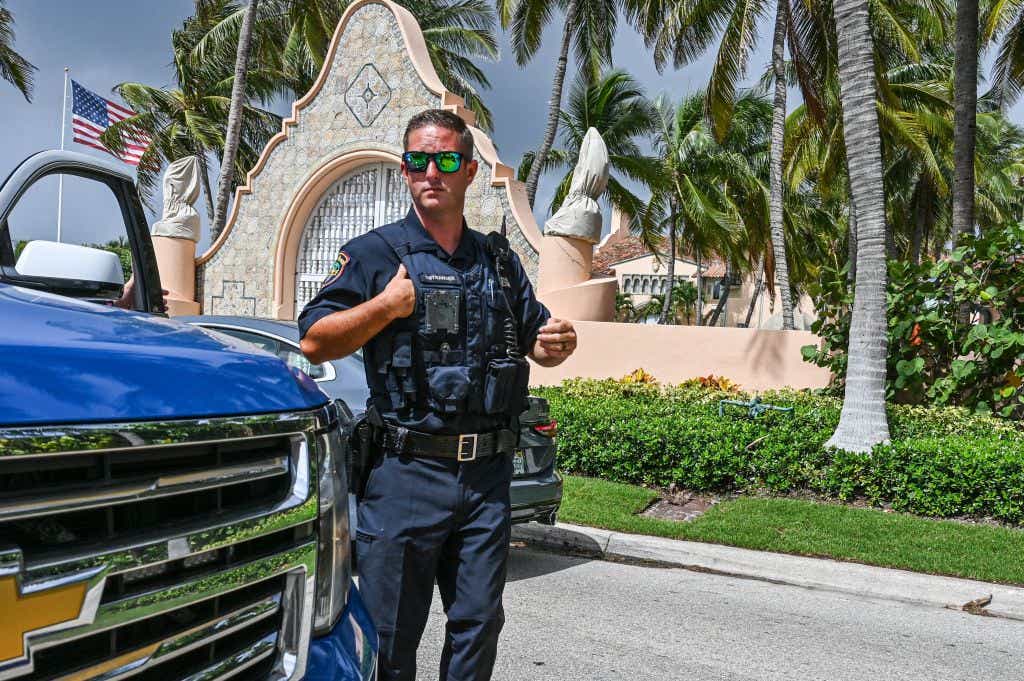The Florida judge overseeing former President Trump’s classified documents trial has officially dismissed the case against him. In her 93-page decision, U.S. District Judge Aileen Cannon ruled that no federal law authorized special counsel Jack Smith’s appointment, and it was therefore “illegal.”
While Trump and his allies praised the decision, Democrats condemned it, and the Justice Department is highly likely to appeal the decision. “This breathtakingly misguided ruling flies in the face of long-accepted practice and repetitive judicial precedence,” Senate Majority Leader Chuck Schumer said in a statement.
The Trump appointee has faced scrutiny almost from the start. Just last year, she shocked legal experts across the ideological divide by suggesting that Trump get special protections as a former president and granting him a special master to review the sensitive government documents the FBI seized at his Mar-a-Lago estate.
Here’s why some are raising questions about her experience in light of her latest decision.
What did she say in her ruling?
Judge Cannon echoed concerns conservative Justice Clarence Thomas voiced when the court ruled on Trump’s immunity defense in another of his cases. Cannon cited Thomas’s opinion not once but three times.
“If this unprecedented prosecution is to proceed, it must be conducted by someone duly authorized to do so by the American people. The lower courts should thus answer these essential questions concerning the Special Counsel’s appointment before proceeding,” Thomas wrote in a solo, concurring opinion.
In an unusual move, she also weighed the legality of the special counsel’s appointment herself at a hearing last month after allowing outside parties to make arguments on the issue. Though Cannon clarified that her ruling is “confined to this proceeding,” it raises questions about the appointments of other special counsels. For instance, a separate special counsel was appointed to investigate criminal wrongdoing by President Biden’s son, Hunter Biden.
Who is Judge Aileen Cannon?
Born in Cali, Colombia, Cannon was raised in Miami, Florida, by her Cuban mother and American father. Before attending law school at the University of Michigan School of Law, she was a paralegal at the Justice Department’s civil rights division.
Upon graduating and passing the bar, she began her legal career as a clerk for a federal appeals judge in Iowa and gained more experience at the prestigious law firm Gibson, Dunn & Crutcher in Washington, D.C.
In 2013, she returned to the Sunshine State, where she worked as a federal prosecutor in the Southern District of Florida in the major crimes and appellate divisions. However, she didn’t get much attention until Trump nominated her as a federal judge seven years later. At that point, the number of actual trials Cannon had presided over was quite limited (more on that in a minute), which opened the door to criticism about her experience. Though judicial confirmations like these have been traditionally divisive, she received little pushback from Democrats and was confirmed 56 to 21, with 12 Democrats joining 44 Republicans to vote in favor.
Since she was confirmed during the coronavirus pandemic, her Senate hearing took place over Zoom, and it was uncharacteristically short. She revealed little about her own legal philosophy or how she would approach the job of a judge, but it’s no secret that she has long been ideologically conservative. She was part of the Federalist Society in law school and clerked for a conservative appeals court judge. She’s also a registered Republican, according to the Times, and has previously donated to Florida Gov. Ron DeSantis’s political campaign, but we don’t know much else about her. Apparently, this points to a larger trend, according to Duke University law professor Sam Buell.
“There has been an overall deterioration in the resumes of people appointed to the federal bench compared to what it was 20 or 30 years ago, so not only does that make it hard to have a sense of who somebody is as a judge and what kinds of views they have, but it’s also worrying in terms of their ability to preside over the proceedings judiciously,” Buell told us last July.
Why was she put in charge of Trump’s case?
It was the luck of the draw — or was it? During her short tenure as a federal judge in South Florida, Judge Cannon has already drawn one of the most historic cases in recent U.S. history two times.
She was first randomly assigned to Trump’s classified documents case after Special Counsel Jack Smith indicted Trump in Florida. There were likely several reasons why Smith chose to bring charges against Trump in Florida instead of Washington, D.C., where the grand jury sat. For one thing, it’s where most of the former president’s alleged crimes took place — and the decision will potentially avoid another legal battle over the trial venue.

But this gamble also ran the risk of Judge Cannon taking on the case, which is exactly what happened. Even though Buell said every district is different, the South Florida clerk’s office uses a method known as “blind random assignment” to designate presiding judges who sit in the division where the matter arose or a neighboring one. As Judge Cannon proved, one small caveat is that they can still be randomly assigned to a case, even if it relates to a previous one.
Though the chief law clerk Angela E. Noble said “normal procedures were followed,” she also acknowledged in an interview with the Times that the odds were in Judge Cannon’s favor because 50 percent of her cases fell within Florida’s West Palm Beach, which is the same district Trump’s Mar-a-Lago estate is in. Judge Cannon also happened to be just one of five eligible judges available to take on the case.
Despite criticism that she issued rulings favorable to the former president in regards to the F.B.I.’s search of his Florida estate, Judge Cannon refused to step down from the case, though experts believe there was nothing fishy about the move. “All she did previously related to this was make a judgment on a legal issue and write an opinion that ended up getting reversed,” he says. “That’s what judges are supposed to be doing. There’s nothing improper about that.”

What do we know about Judge Cannon’s record?
One of the main criticisms against Judge Cannon is her lack of experience in running criminal trials. According to a Bloomberg Law database, she was assigned 224 of these types of cases—including drug trafficking and firearm offenses—throughout her career. But only four of those went to trial, giving her what some fear is little courtroom know-how.
Even when she doled out sentences, they were considered relatively lenient, particularly when it came to non-violent crimes. For instance, she decided to sentence a Miami-area business owner to 32 months in prison for defrauding government agencies, which was nearly 25 percent shorter than what was recommended by prosecutors, per a CBS News review. That said, most of her opinions have been met without notable controversy or disputes.
Buell has said that she’s demonstrated a “willingness to pursue novel legal theories” after ruling in favor of Trump’s challenge to the F.B.I.’s court-approved search of his Mar-a-Lago home. “The vast majority of judges would’ve dismissed that case in fairly short order, but she seemed to think that because of who this was, this was wasn’t an ordinary search warrant,” he says.









